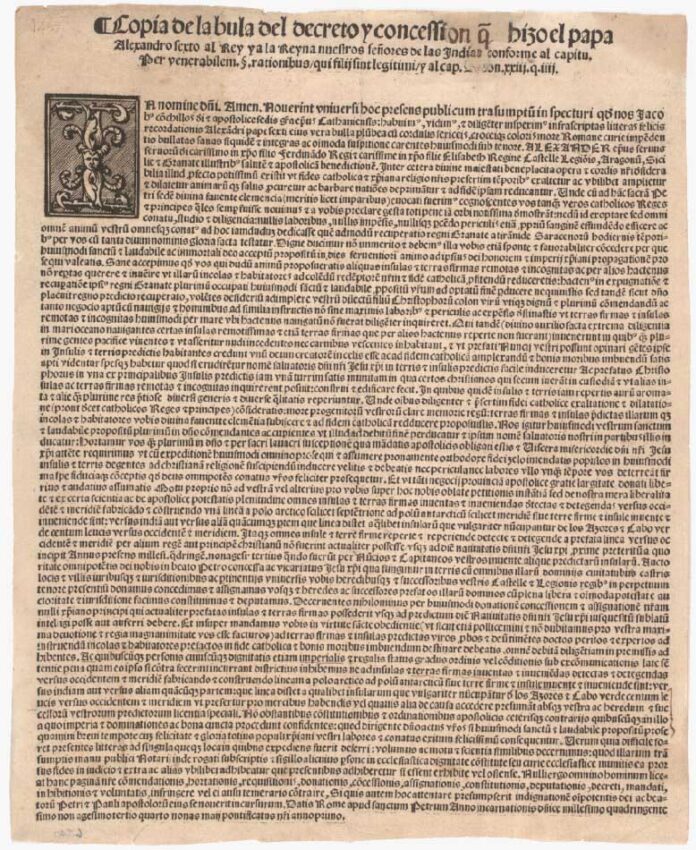
By Stacy M. Brown, NNPA Newswire Senior National Correspondent
The Vatican has responded to Indigenous demands and formally repudiated the “Doctrine of Discovery,” the theories backed by 15th-century “papal bulls” that legitimized the colonial-era seizure of Native lands and form the basis of some property laws today.
A Vatican statement said the papal bulls, or decrees, “did not adequately reflect the equal dignity and rights of Indigenous peoples” and have never been considered expressions of the Catholic faith.
The statement, from the Vatican’s development and education offices, reportedly marked a historic recognition of the Vatican’s own complicity in colonial-era abuses committed by European powers.
It was issued under history’s first Latin American pontiff, exactly one year after Francis met at the Vatican with Indigenous leaders from Canada who raised the issue.
Thanks to dialogue with indigenous peoples, “the Church has acquired a greater awareness of their sufferings, past and present, due to the expropriation of their lands … as well as the policies of forced assimilation, promoted by the governmental authorities of the time, intended to eliminate their indigenous cultures,” according to a joint statement issued by the Dicastery for Culture and Education and the Dicastery for Promoting Integral Human Development.
The document states that the “Doctrine of Discovery” – a theory that served to justify the expropriation by sovereign colonizers of indigenous lands from their rightful owners – “is not a part of the teaching of the Catholic Church.”
It further affirms that the papal bulls that granted such “rights” to colonizing sovereigns have never been a part of the Church’s Magisterium.
NPR noted that the doctrine was laid out in a series of papal “bulls,” or decrees; the first one was issued in 1452.
They authorized colonial powers such as Spain and Portugal to seize lands and subjugate people in Africa and the “New World,” as long as people on the lands were not Christians.
The outlet further noted that scholars widely note three bulls: Pope Nicholas V’s Dum diversas (1452) and Romanus Pontifex (1455); and Pope Alexander VI’s Inter caetera (1493).
“Back in the in the 19th century, it was used as a precedent which gave people a sense of title to land that had not been owned with an official title in deed,” Rev. David McCallum, executive director of the Program for Discerning Leadership based in Rome, told NPR.
So what began as a religious decree in the 1400s then became the basis for a legal concept in the U.S., when the Doctrine of Discovery was invoked in an 1823 U.S. Supreme Court ruling that Indigenous people had only rights of “occupancy,” not ownership, over lands they had long lived on.
The land, then, was open for the taking.
“As a result of this being written into the American property law, it was actually considered a precedent,” McCallum said, including citations as recent as a 2005 case in upstate New York, involving the Oneida Indian Nation.
Invoking the Christian mandate to respect the dignity of every human being, the Vatican said on Thursday, “The Catholic Church therefore repudiates those concepts that fail to recognize the inherent human rights of indigenous peoples, including what has become known as the legal and political ‘doctrine of discovery.’
“I know there’s a lot of other news clogging the airwaves right now but this action by Pope Francis and the Vatican is by far the most important that is happening in the world right now,” environmental justice pioneer, civil rights and racial justice advocate Vernice Miller-Travis wrote on Twitter.
“Few things have done more damage the world over than the papal ‘Doctrine of Discovery.’”


